 W
WJoseph Anglade (1868–1930) was a French philologist. He specialized in Romance languages, particularly Occitan, and studied the lyrics of the troubadours. He was instrumental in formalizing the term Occitan for the language of Provence.
 W
WGéza Bárczi Kossuth Prize-winning Hungarian linguist, member of the Hungarian Academy of Sciences, Esperantist. He was one of the most outstanding Hungarian linguists of the 20th century, and an exemplary personality in the training of scholars and teachers.
 W
WHeinrich Breitinger was a Swiss literary historian and philologist.
 W
WErnst Robert Curtius was a German literary scholar, philologist, and Romance language literary critic, best known for his 1948 study Europäische Literatur und Lateinisches Mittelalter, translated in English as European Literature and the Latin Middle Ages.
 W
WPierre Danet was a French cleric, Latinist, Hellenist, Romanist and lexicographer.
 W
WCaspar Decurtins was a politician (Catholic-Conservative) from the Surselva region, up-river to the west of Chur in the Swiss canton of Grisons.
 W
WEugénie Droz was a Swiss romance scholar, editor publisher and writer, originally from the Suisse Romande. She created the Librairie Droz, a publisher and seller of academic books, at Paris in 1924, moving the business to Geneva at the end of the war.
 W
WGeorg Karl Wilhelm Adolf Ebert was a Romance philologist and literary historian. He was an author of literary studies as well as a publisher of periodicals, including the Jahrbuch für Romanische und Englische Literatur.
 W
WLeon Feraru was a Romanian and American poet, literary historian and translator. Cultivating proletarian literature while frequenting the Symbolist movement, he displayed both his origins in the Romanian Jewish underclass and his appreciation for the wider Romanian culture. He popularized the latter with his work in America, having left in 1913 to escape antisemitic pressures. A translator, publicist, and public lecturer, he was involved with the Romanian press of New York City, and eventually as a Romance studies academic at Columbia and Long Island. Feraru's poetry, collected in two volumes, mixes Romanian patriotism, traditionalist references, and modern industrial aesthetics.
 W
WInez De Florio is a German applied linguist and educational psychologist whose work focuses on science-oriented teaching and learning with particular reference to multilingualism and intercultural competence. She is a proponent of empirical research. Above all, her critical view of evidence-based education leads her to a particular focus on individual aspects of teachers, learners and their learning contexts.
 W
WGustav Gröber was a German Romance philologist.
 W
WAlbert Guillem Hauf i Valls is a Majorcan philologist, literature historian and literary critic. He is a specialist in Catalan and Occitan medieval literature.
 W
WJakob Jud [ju:t] was a Swiss Romance linguist (Romanist).
 W
WWerner Krauss was a German university professor.
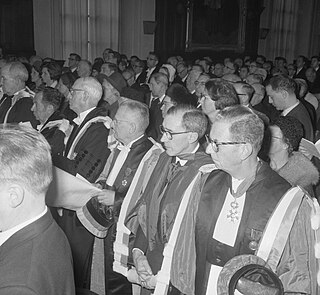 W
WRaymond Lebègue was a 20th-century French literary historian. The son of palaeographer Henri Lebègue, he was elected a member of the Académie des Inscriptions et Belles-Lettres in 1955.
 W
WJaume Medina i Casanovas is a Catalan philologist, latinist, writer, translator and poet.
 W
WRamón Menéndez Pidal was a Spanish philologist and historian. He worked extensively on the history of the Spanish language and Spanish folklore and folk poetry. One of his main topics was the history and legend of El Cid. He was nominated for a Nobel Prize 23 times, the most nominated person, three times more than the second most nominated person, André Malraux.
 W
WWilhelm Meyer-Lübke was a Swiss philologist of the Neogrammarian school of linguistics.
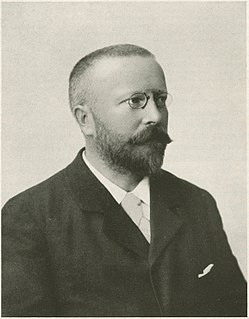 W
WHeinrich Morf was a Swiss linguist and literary historian.
 W
WAdolf Mussafia, also known as Adolfo Mussafia or Adolpho Mussaphia, was a polyglot Austrian philologist from Dalmatia, author of over 350 works.
 W
WJosep Maria Nadal i Farreras is Professor of History of Language at the University of Girona.
 W
WJosep Palomero i Almela is a Valencian linguist and vice-president of the Valencian Language Academy.
 W
WAlexandru I. Philippide was a Romanian linguist and philologist. Educated in Iași and Halle, he taught high school for several years until 1893, when he secured a professorship at the University of Iași that he would hold until his death forty years later. He began publishing books on the Romanian language around the time he graduated from university, but it was not until he became a professor that he drew wider attention, thanks to a study of the language's history. Although not particularly ideological, he penned sharp, witty polemics directed at various intellectual figures, both at home and, in one noted case, in Germany.
 W
WÉmile Picot was a French Romance philologist.
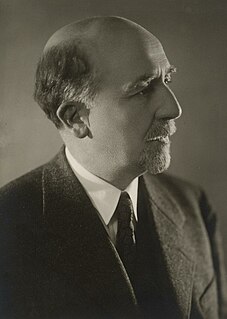 W
WSextil Iosif Pușcariu was an Austro-Hungarian-born Romanian linguist and philologist, also known for his involvement in administrative and party politics.
 W
WFrançois Just Marie Raynouard was a French dramatist and linguist.
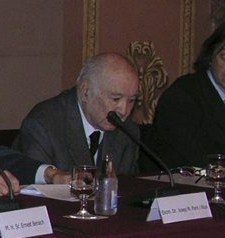 W
WMartí de Riquer i Morera, 8th Count of Casa Dávalos was a Spanish–Catalan literary historian and Romance philologist, a recognised international authority in the field. His writing career lasted from 1934 to 2004. He was also a nobleman and Grandee of Spain.
 W
WLazăr Șăineanu was a Romanian-born philologist, linguist, folklorist and cultural historian. A specialist in Oriental and Romance studies, as well as a Germanist, he was primarily known for his contribution to Yiddish and Romanian philology, his work in evolutionary linguistics, and his activity as a literary and philological comparatist. Șăineanu also had innovative contributions to the investigation and anthologizing of Romanian folklore, placed in relation to Balkan and East Central European traditions, as well as to the historical evolution of Romanian in a larger Balkan context, and was a celebrated early contributor to Romanian lexicography. His main initiatives in these fields are a large corpus of collected fairy tales and the 1896 Dicționarul universal al limbii române, which have endured among the most popular Romanian scientific works.
 W
WRita Schober was a German scholar of Romance studies and literature.
 W
WHugo Paul Thieme was an American literary critic, bibliographer, and university professor.
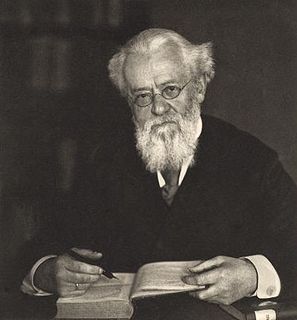 W
WAdolf Tobler was a Swiss-German linguist and philologist. Born in Hirzel in Zürich, Switzerland, he was the brother of linguist Ludwig Tobler (1827–1895). Adolf Tobler died in Berlin, Germany.
 W
WKarl Vossler was a German linguist and scholar, and a leading Romanist. Vossler was known for his interest in Italian thought, and as a follower of Benedetto Croce. He declared his support of the German military by signing the Manifesto of the Ninety-Three in 1914. However, he opposed the Nazi government, and supported many Jewish intellectuals at that time.
 W
WFerdinand Wolf was a scholar of Romance studies from Austria. He was an author of literary studies as well as a publisher of periodicals, including the Jahrbuch für Romanische und Englische Literatur.
 W
WPaul Zarifopol was a Romanian literary and social critic, essayist, and literary historian. The scion of an aristocratic family, formally trained in both philology and the sociology of literature, he emerged in the 1910s as a rebel, highly distinctive, voice among the Romanian press and book reviewers. He was a confidant and publisher of the Romanian writer Ion Luca Caragiale, building his theories on Caragiale's already trenchant appraisals of Romanian society and culture. Zarifopol defended art for art's sake even against the Marxism of his father-in-law, Constantin Dobrogeanu-Gherea, and the Poporanism of his friend, Garabet Ibrăileanu. He was also a noted censurer of neoclassical trends, of philistinism, and of inauthentic customs, advocating renewal, but not revolution. A skeptic reviewer of modernist literature, he reemerged during the interwar period as its dedicated promoter, but his preference for literary entertainment over substance and many of his literary bets were shortly dismissed by other experts of the day.